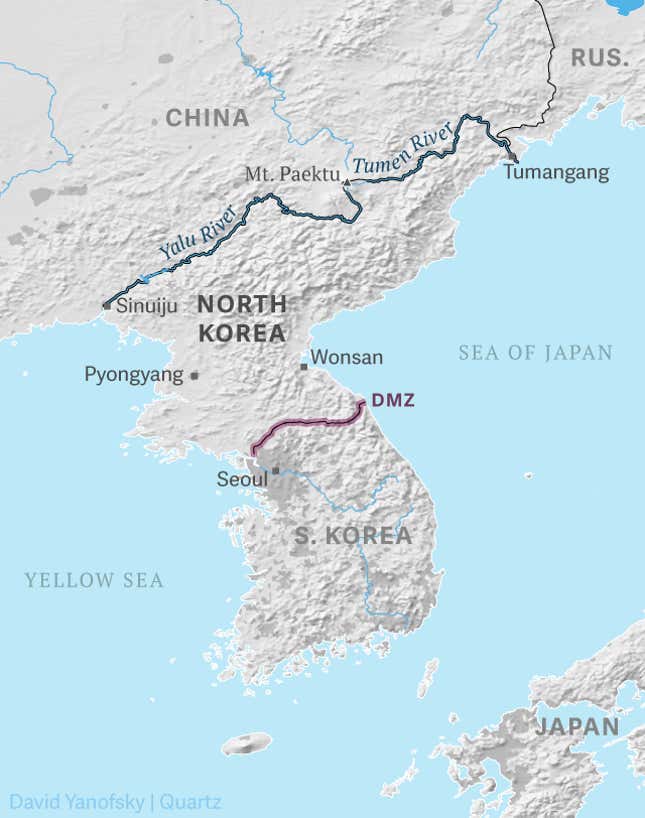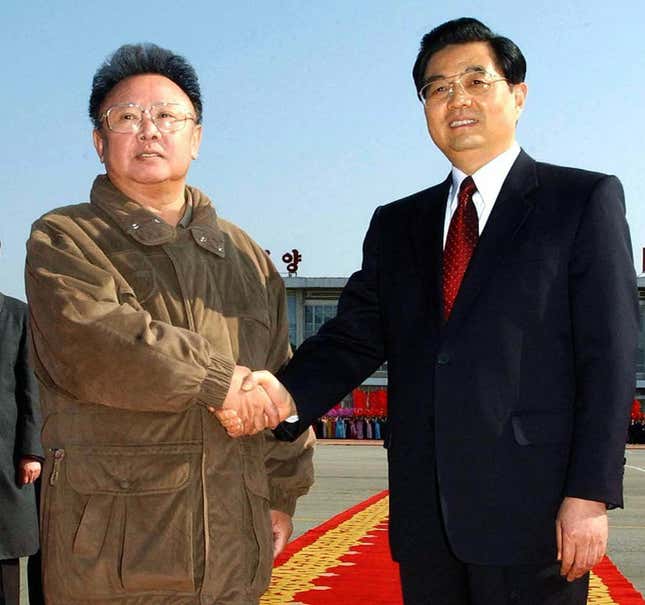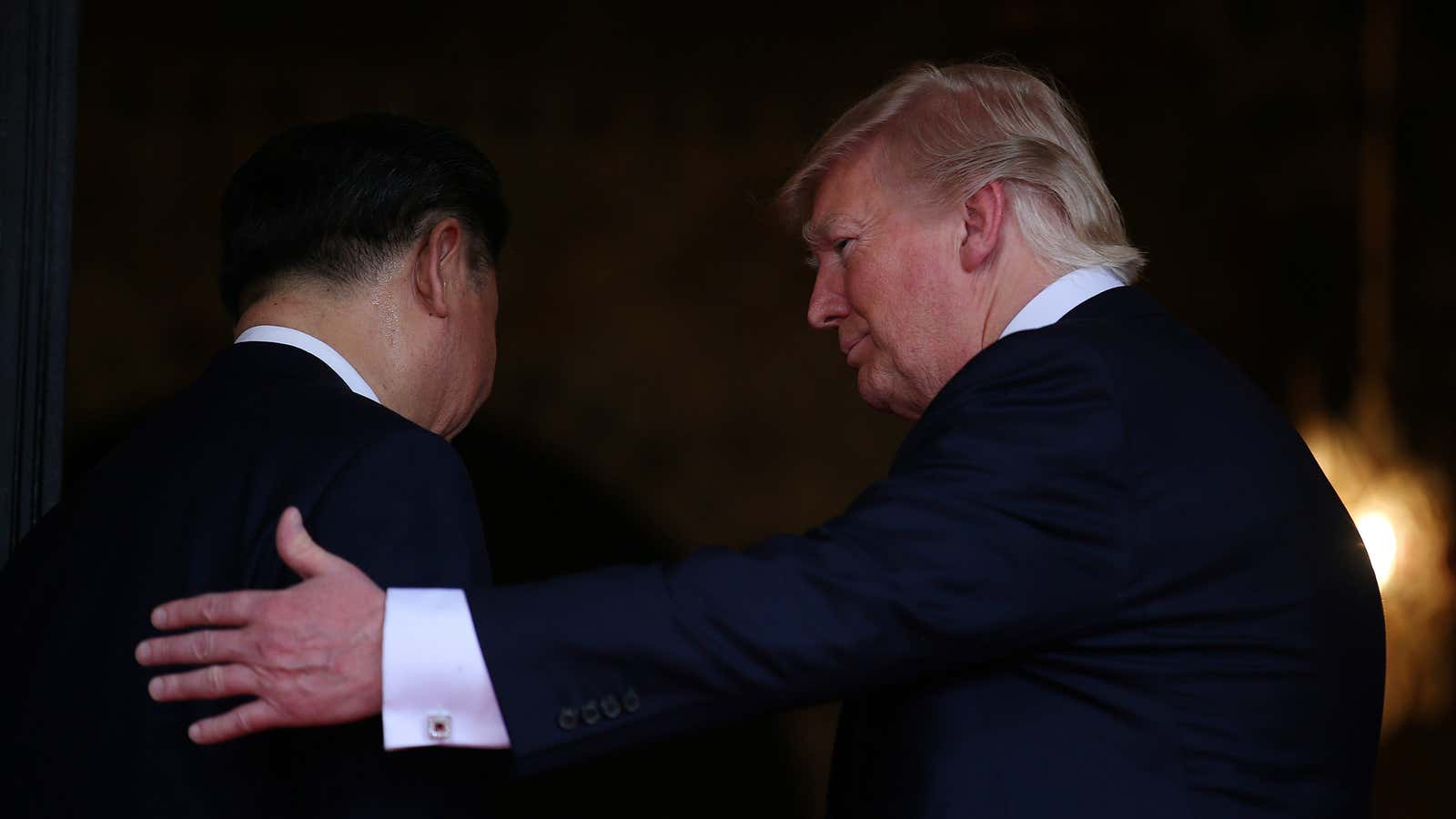Soon after North Korea sent another missile over Japan Friday morning (Sept. 15), US secretary of state Rex Tillerson called on China and Russia to take stronger action on their own against North Korea. When it comes to China, that might already be happening.
Around the time the US was agreeing to leave a full oil embargo out of the latest sanctions on North Korea, viewed as a concession to China and Russia, news reports out of Beijing said that the biggest state banks had been ordered to stop opening new accounts for North Korean individuals and entities. The Chinese measures, reported by various publications including the Financial Times (paywall) and South Korea’s Daily NK news site, go further than current UN sanctions, which, while well short of what the US wanted, should see some reduction in the supply of energy products to North Korea.

China’s bottom-line position on North Korea is that it’s not going to allow chaos on its doorstep, whether that’s a brutal war or a refugee crisis. It has long pushed for a return to talks, and for the US and South Korea to barter an end to their joint military exercises for North Korea to cease testing. But, North Korea’s frequent weapons tests, coinciding with big events in China, haven’t helped the relationship any. Meanwhile the US is keeping the pressure up on China.
For China, that means getting tougher on North Korea—but not overly tough.
“Beijing wants to teach North Korea a lesson without causing its collapse,” said Zhang Baohui, director of the Center for Asian Pacific Studies at Hong Kong’s Lingnan University. “These do show some changes in China’s thinking about North Korea as the sanctions are unprecedented.”
More hawkish voices
Many are noting (paywall) that in China’s academic community, hawkish voices on North Korea are gradually taking the center stage, as Pyongyang has conducted more ambitious missile and nuclear tests, raising concerns in Beijing of radioactive fallout in its northern areas. “I think what North Korea has done makes the doves increasingly hard to rationalize their thesis,” Cheng Xiaohe, a professor of the School of International Studies at Renmin University of China in Beijing, told Quartz.

Zhang Liangui, a professor at the Chinese Communist party’s Central Party School, the top cadre-training institution, has urged the need for a stronger stance on North Korea. “The sanctions imposed on North Korea are still lacking strength and global scale,” he said in an interview with the FT (paywall) last week.
Zhang’s remarks echo his colleagues’ frustration. “As momentum once again builds in Beijing to reassess its relationship with North Korea, it is time for China to make a significant shift in its policy, once and for all,” wrote Zhu Feng, director of the Institute of International Studies at Nanjing University, in the July edition (paywall) of the US journal Foreign Affairs. Zhu called on China to put more economic sanctions on North Korea, including banning Chinese banks from doing business with Pyongyang’s front companies.
Unlike in many other countries, the interplay between Communist Party-run China’s ruling elite and its academic circles, is more limited, but not nonexistent.
China’s North Korea policy comes directly from president Xi Jinping, said Lingnan University’s Zhang, and the latest UN sanctions and the reported bank restrictions show that “Xi has lost patience.”
A constant trade-off with the US
US president Donald Trump is expected to embark upon his first state visit to China later this year, likely in November. At the top of the agenda for the second episode of the Trump-Xi summit is without doubt the North Korean crisis, as well as China’s alleged trade abuses against the US, two items that are closely linked for the US.
“It is possible that China is using concessions to assure a successful summit with Trump in Beijing,” said Lingnan’s Zhang. This week, top diplomats of the two countries—China’s state councilor Yang Jiechi and US secretary of state Rex Tillerson—met with each other in Washington to help ensure Trump’s visit will “achieve positive results,” state news agency Xinhua said.
In August, the US Treasury department announced new sanctions targeting 16 companies and individuals, mostly from China and Russia, for allegedly supporting North Korea’s weapons programs. Beijing has criticized what it called an act of “long-arm jurisdiction.” The same month, Trump ordered a probe into China’s alleged theft of American intellectual property in the first direct trade measure by his administration against Beijing. But by backing a previous UN sanction in August that would cut North Korea’s exports by a third, Xi has arguably bought time with Trump on trade.
“The Trump administration has made it explicit that there is a constant trade-off between trade issues and North Korea,” John Delury, a professor of Chinese studies at Yonsei University in Seoul, told Bloomberg after those sanctions.
Addressing an investors’ conference in New York this week, US Treasury secretary Steve Mnuchin said the US has “absolutely moved the needle on China” when it comes to North Korea. If China doesn’t follow the UN sanctions, Mnuchin said, “we will put additional sanctions on them.”
Admittedly, China’s ability to successfully trade off with the US is largely dependent on the moves of its unpredictable neighbor. If North Korea makes too provocative a move, the US may be unwilling to accept anything less from China than agreement to an oil embargo.
“China wants to make North Korea feel the pain and at the same time leave an exit for North Korea to return to negotiating table,” said Renmin University’s Cheng. “What China is doing is risk-taking. If North Korea continues to provoke, China will be cornered.”
